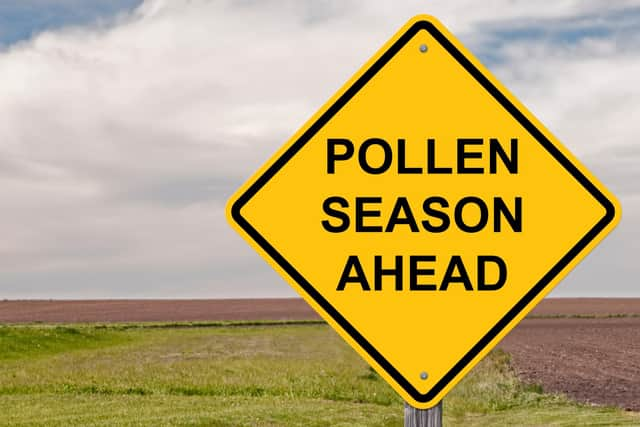North West hay fever sufferers warned penalty points are not to be sniffed at
and live on Freeview channel 276
Pollen predictions show things could get uncomfortable for sufferers on Friday and into Saturday when the pollen count is forecast to jump to ‘high’, after being classed as ‘medium’ for many regions throughout the week.
The region’s hay fever sufferers who are vulnerable to oak and birch pollen might be especially affected – although oak pollen is considered mildly allergic compared to other tree pollens, it tends to stay in the air longer, which can cause a severe reaction.
Advertisement
Hide AdAdvertisement
Hide AdThe Met Office forecast has led to a warning from one of the country’s leading car insurance comparison websites, concerned that most motorists are unaware of the fact that ‘driving under the influence’ could result in hefty fines and points on their licence. Some hay fever medications could see drivers committing this type of motoring offence without even realising it.


Insurance comparison website Quotezone.co.uk says the government legislation that bans driving while under the influence, does not distinguish between illicit drugs, prescription medication and over-the-counter medications. This means any type of drug that affects a motorist’s driving abilities could potentially result in a drug-driving conviction, even if it’s something as simple as hay fever medication that causes drowsiness.
One in four people in the UK has hay fever, that’s approximately 16 million people, according to the Natasha Allergy Research Foundation. Grass pollen is arguably the biggest cause of seasonal allergies, affecting approximately 90% of hay fever sufferers – with peak season from mid-May until July.
North West hay fever sufferers could consider the following advice before getting behind the wheel:
Advertisement
Hide AdAdvertisement
Hide AdCheck medication - antihistamines and hay fever medications can differ in strength, check with the doctor if in any doubt about possible side effects and always read the label – the warning, ‘do not operate heavy machinery’ is commonly found and applies to cars, forklifts and any other heavy machinery.
Plan journeys – check the Met Office pollen warnings or download the weather app, which gives a 5-day forecast for high pollen counts.
Keep the car as pollen-free as possible - clean the car regularly to get rid of dust that could trigger symptoms before setting out, regularly change pollen filters in the car’s ventilation system and keep car windows closed during journeys.
Get stocked up – keep the car stocked with fresh tissues, hay fever medicine, a bottle of water, eye drops, anything used to ease the symptoms, should they strike unexpectedly.
Advertisement
Hide AdAdvertisement
Hide AdDrive safely – better to err on the side of caution, giving lots of space to fellow road users and taking breaks if hay fever symptoms start. If drivers don’t feel well or the pollen count is high, play it safe and don’t make non-urgent journeys.
Greg Wilson, Founder of Quotezone.co.uk, said: “While some hay fever medications are non-drowsy, some types do cause drowsiness, and some prescription hay fever tablets in particular carry a ‘do not operate heavy machinery’ warning. If a driver fails to obey this warning and gets behind the wheel, they could risk a hefty fine of up to £5,000, points on their licence and endanger themselves and other road users.”